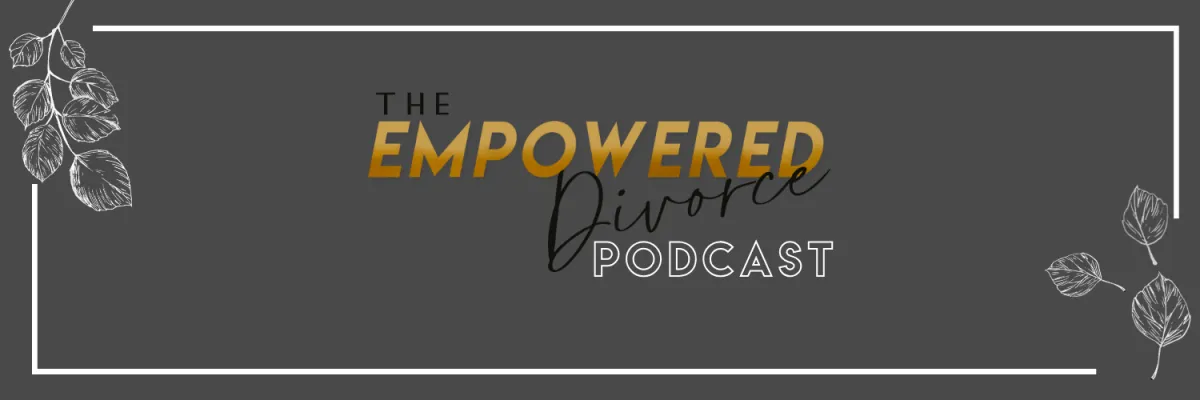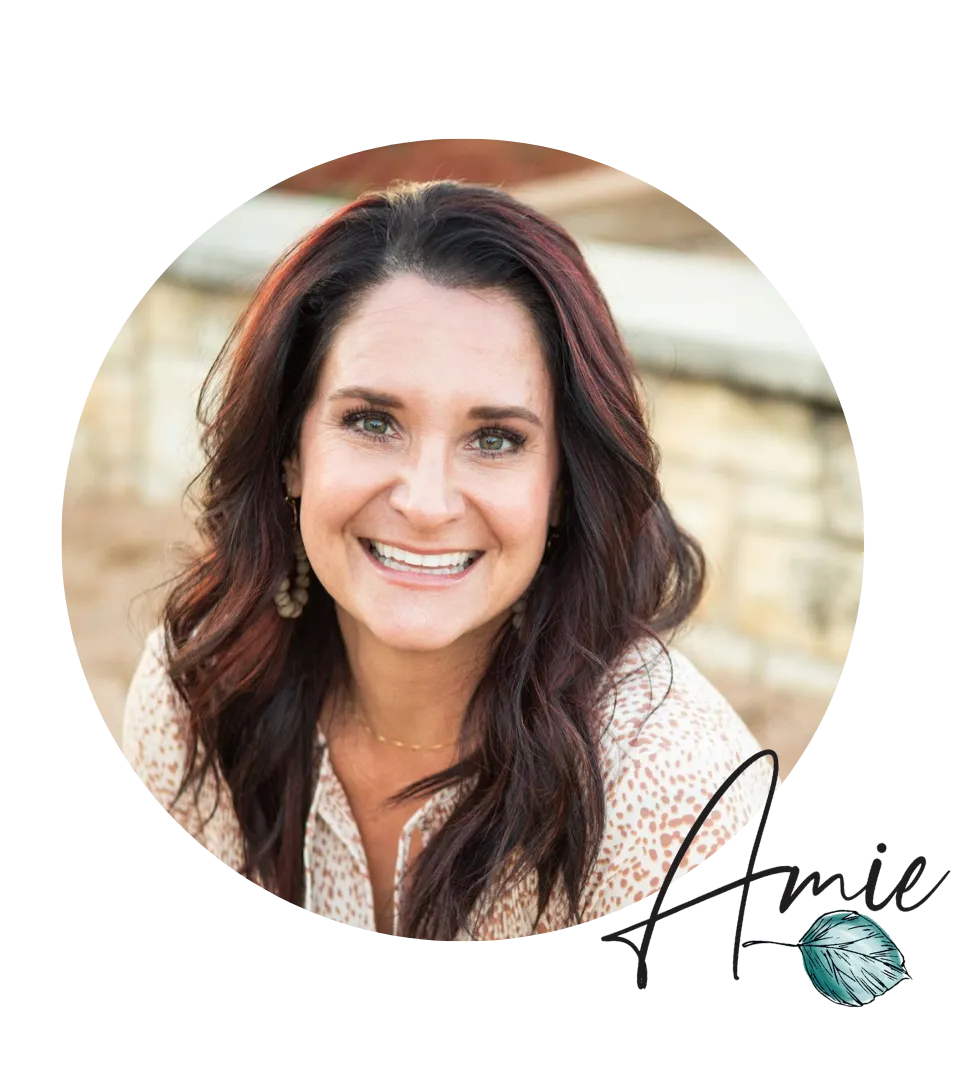
3. Women Supporting Women: Healing From Divorce, Jill's Story
You are not alone. Women are experiencing extremely difficult divorces and often feel like they are the only ones going through hell. This series of Women Supporting Women is to help you see that you are not the only one, that you are not crazy and that you too can heal and move forward from a place of empowerment.
Hear how Jill navigated an abusive marriage and went from feeling powerless and fearful to empowered and thriving. You can too!
Read Full Transcript
Hello. Hello. Amazing, beautiful listeners. Welcome to the empowered divorce podcast. I'm excited to bring you another amazing interview. With a woman who has navigated divorce and learned how to step into her own power. And get that life that she She stepped into her own power to start creating something new, despite the overwhelming fears that I'm sure a lot of you who are listening are experiencing. And again, my hope with these interviews is to.
Is to have women supporting women so that you who are in the thick of it right now. Who feel like there's no way out. Who feel disempowered and probably can't even begin to think of what another life outside of what your living could look like. Hopefully these interviews are getting you a little bit of
Into what that could be for you. And my hope is that as you listen, You yourself become inspired and receive, even if it's just a small shift, but a shift in your thinking. And maybe from that place of victim thinking or disempowerment to that agent power mode that I talk about. To a place of choice of choosing something for your life and knowing that you can create
I cannot wait for you to hear this interview. I'm a little sad about the quality of audio. So sorry about that. I was multitasking and recording in the car. I was waiting for my son who was with his batting coach. But. That's how we do it as women right just we're amazing multitaskers all right so let's go ahead and get to it thanks again for being here and here we go just said to you what I wanted everyone to hear, , is that I just, I do, I really wanted your voice to be
I wanted your voice to be heard, your story. I resonate with so many parts of your story, and I know you've been through. And like you just said to me, you're like, But I'm through it. And I know there was a point where you would've never thought you could've gotten through that. I know there was a point in my journey where I was like, There's no way.
Yeah. I'm gonna get that. Exactly. And yet here you are. And so, I cannot wait for women to hear pieces of your story where you felt like there's no way. So thank you so much. I'm glad to help because I know it was voices like yours and others that helped me in my journey and helped take those further steps.
And it really is one, like one step at a time. , right? So much of it, it just feels too much. Like I can't do all the things that my brain is telling me has to be done. And so it really does just come one step at a time, but Okay. So just wherever you feel comfortable starting in your journey.
Yeah, I'll just turn it over to you. So my relationship, I was married for about 21 years before the divorce was final. It's hard to pinpoint a time when it started to go sideways cuz it was so gradual. Things seemed off looking back. There's things that I could see in the beginning that maybe weren't right, didn't sit right or felt maybe not like I thought a relationship would be, but I just went along, thinking marriage.
Is hard work. It takes time and it takes effort. Several years, at about seven, eight years in, there were some significant domestic violence that occurred but it was short termed and I didn't feel like what an abused woman, what I labeled an abused woman to be. I wasn't beat up. I didn't have the crap beat out of me, and so I didn't qualify it as domestic violence.
Even though there was pieces of that and even an arrest, and so that was difficult to identify as that story and be able to own that and not shame that piece But that kind of was a jump start to, okay, now we get to fix things. We, this is the fire, we're gonna put the fire out and really look at this and see what can be done to change in the relationship.
And there were significant other issues that happened along the years, and there was a lot of. Gas lighting manipulation is probably the biggest issues that started to happen that I believed, I would believe those items that were said as far as if I d if I did something different in the relationship, if I behaved differently or if I showed up differently, or if I loved enough, or, if I had supported enough things would be different on his end.
He would treat me differently, he would act differently. And so I really took that on. I really took accountability in that. Not in a good way. Not in a healthy way because then it became mine to fix mine to take care of. And it really, while I think it's important, every person takes accountability for their issues, it enabled the manipulation and things to continue happening.
So I would say the biggest turning point was probably about five years ago, where we'd made it through some difficult times and I said I wouldn't. Deal with that. Again, if those issues became up again, I wouldn't stay through those. And then those patterns started to repeat and started to show up again.
And it was like, okay, but let's give it maybe like three months and do some justification. Okay, three months, I'll reevaluate. Right? Cuz it's so scary to make those decisions, to make those moves. And so then three months would come and it was okay and it was like, okay, three more months, and then something would happen and jumpstart.
The process. And about four years ago, significant things happened to a point where I was in a place that I knew that I had to start making other decisions besides staying in and accepting what was happening. It didn't work for me anymore to, take arm all that accountability. It was killing me.
Like physically, mentally, dream of fatigue, lots of health issues that no doctors could find anything wrong with, But I was dying inside. And so I decided at that point that there needed to be a separation. There was no longer any trust in the relationship, and I couldn't fix it. I couldn't babysit.
I couldn't monitor. I couldn't filter. I couldn't demand honesty. Anymore. And I thought that was, I thought that's how the marriage would get fixed, right? Is if I held him accountable enough, if I made sure he did the things that were going to make this marriage work. And I think that was one of those, you talk about stuck points, and I think that was a stuck point for me was.
Thinking it was on me to fix the marriage when this wasn't even a marriage issue coming into honesty and integrity and how we're gonna, act towards each other that there was nothing I could do to make him choose to act differently towards me. So yeah. That's when things started to really change was about four years ago.
And I decided to ask for a separation. And start taking steps for my own mental health, my own caretaking, my own healing process was at that point. And at that point, was it an in-house separation or out. It was out of house separation. I'd asked him to move out. I knew that I needed separation to be able to think clearly, and in fact, he was given a job offer out of town, and I remember at that time, Thinking, I knew he was gonna get the job offer and I knew that it was necessary for me to have separation from him in order to really see this picture as a whole, to see what was going on and to separate my behaviors from him as well.
And so, it became an out of home separation. But it was interesting. It wasn't done. We weren't in therapy and things like that, so I don't think we had a lot of guidelines. It was like, Okay, just go sleep somebody somewhere else. And he would come back to the house and that was hard for me cuz then it didn't really gimme clear clear boundaries.
But then when he did move outta town, he was gone for about nine months before he moved back home. He moved back home into the house? Not by my choice. It wasn't a, it wasn't a mutual decision.
Gotcha. Gotcha. Okay. I wanna back up a little bit. You said something that I think so many women will resonate. , and I think it's looked over so often, and right at the very beginning of your story, it was, and I can totally relate to this, certain things didn't seem right.
There were certain things that just sit right with me, but I thought, well, this is just marriage. Marriage is hard. That idea that we get, and I just know that so many women can resonate with that. And I wanna give voice to it because I don't know. Where different women are gonna be at in their journey listening to this.
And I just feel like , if you feel this, if you feel at any point, something just doesn't sit right, it feels off. , trust your gut. , you just trust it. You have a right to be wrong. And if you get more information, you're like, Okay, yeah, I was wrong. Great . But until then, like just trust that I wish I would've had someone telling me that because very similarly, it was like right in the beginning, just I'd wake up in the middle of the night and he'd be gone out of the bed and I'd just be like, Something's weird.
That's interesting that you bring that up because that is a huge turning point in my story. So there's a book I read seven years into Marriage. It's called The Gift Affair by Gavin DeBaker or Deber, something like that. Has nothing to do with. Necessarily like spousal, like marriage, things being off.
But the whole book is about trusting your instinct for protection, for safety. Like believe this. And I had a friend, I had three girls at the time, and my friend was like, You have to read this. So I read it and it sunk so true to me because the whole book was about believe when if something fills off, something's off.
And it was. Something's off. Something is seriously off in my marriage and I don't know what to do about this. And it, that was the very first time that ever gave voice to me. It gave me the power to be able to question something didn't feel right in my marriage. Yeah. Was when I finally tuned into something.
Yeah. Something doesn't feel right. But it took seven years to give myself permission to do it. Well, I was just gonna say it's okay. So now I recognize it and then what you just said is another powerful piece. Okay, well now what? , Right. Okay. It feels, And now freaking what? And that in of itself, there's so many nuances around and so hard to navigate.
And again, wherever you are listening to, Even if you recognize it and you validate it, that now what piece is a hard one to to walk through one step at a time. . And as we're listening to your journey, it sounds like there were little pieces just like the book, little pieces along the way that gave you more awareness here.
More awareness there. and I just feel like the more I, the longer I do this, the more I talk to women and hear their stories. It really is like no one gets to say when the right time is to leave. It really is an individual decision. And I used to be upset with myself for not leaving earlier.
And that was one of the forgive myself pieces is like I did. I did exactly right. Yeah. Yeah. I wasn't ready until I was ready. Yeah, I had that a lot five years ago. Like I knew that divorce needed to happen and it didn't come about for five years. There was a lot that happened in that time period to help me feel prepared, ready to take those steps, to get my grounding and to get those pieces.
And I often tell myself, I would be hard on myself and judge myself because I did, felt very guided and led to leave. So then I was very hard on myself for not leaving sooner, not trusting enough to leave. And sometimes it's a matter of like heaven father knows. There's knowing of how long that's going to take, so that, that guidance is factored.
Yeah, for sure. And I feel as I look at my journey, I don't know if you can resonate this with this, but I feel as I, I look back and I watch how I was so stuck and really it was a matter of just me not seeing how I was stuck and not believing in myself and all of the, all of those pieces.
But he would put. People in my path or a scripture verse in my path just certain things along the way. gave me that new thought,, Oh, maybe I can. Yeah. Oh, maybe I do have the right, Oh, maybe that is, And it was just those little new thoughts along the way that I think accumulated until it was like, Okay, now
Yeah. So I don't know if you familiar with that, but yeah, I resonate with that. So, So much and I, some of those pieces, honestly, you're one of those pieces hugely for me. As I looked at where I was stuck and the guidance that you gave me, I don't know if you remember when I went to the retreat, it was a week before my mediation and I remember talking to you.
One of my stuck points was, I wanted to fight hard for a few things. There are a few things that I was dead set on one custody to like my home and having a place for my kids. And I remember talking to you about that and my stuck point was like, No, my kids need me more. Like he wants this setup of custody and I don't feel like it's good for my kids.
It's not gonna be okay. I need to protect my kids. That's why I stayed five years longer for protection, to keep them safe, to keep. To teach them and buffer whatever needed to happen. And I remember asking you like, Do I go in and fight for this? And you said, You accept whatever the outcome is and understand that's their journey.
And that was huge for me. Amy, I don't know if you realize how huge of a piece that was, because that had kept me for five years staying and instead of letting go and thinking that it was my job to protect them and keep them from everything that was going to come about because of it and hold their pain and not let them, suffer.
I sat back and it's been a key point for me over the last, however many months, 10 months, eight months to know that whatever comes their way and whatever's come my way is our journey. It's our learning experience, and we're going to. Learn from that and have growth from that. So yeah, that's been a huge piece is in that is understanding these little pieces and that gave me the courage to show up in mediation that gave me the courage to understand that there were, there was a bigger picture in allowing a custody that maybe I wasn't okay with and that I didn't want because I could show my kids.
A safe place to come to. I could show them the difference. I could help them in their journey, and they were gonna prepare better for whatever life brought them. Yeah. Wow. That's so powerful. It's hard to do. That was very brave and courageous to accept that thought and apply it. So I'm curious.
, how have you seen your children? Benefit from your safety and having a safe space. Now all to. It's huge for me to have a safe place. It's huge for me to have, like here, to have a place where I get to recharge because then when my kids do come back to my house, I have prepared a place where they can show up and they can talk, they can share.
And I can help them process through the things that they're struggling with, without judgment. It gives me an opportunity to be able to help them with tools of grounding and to teach them when they're starting to spin. I recognize that spin that happens, when they're being gas lit or when there's things happening that they're not okay with.
And I'm able to take those tools and really teach them and help them unravel. From, it's not what's actually being said. It's what they're feeling. And it's great. I mean, it's a powerful enough place that my. My daughter, my oldest daughter at home right now has commented on it and made made changes in her time of what she does and where she chooses to be recreationally based on where she feels safe.
Fascinating. I love it. She's been able to herself, like it wasn't me. I didn't point it out to her. Yeah. Which is what. I mean, that's the ultimate teaching . Right? And I love that. Thank you so much for sharing that. And it just, it gives me goosebumps and I'm honestly like holding back tears because as I hear you talk, it's just it's so strong and brave what you've done.
And I remember I called it a healing home. I. Was determined to have a healing home where my kids can come from. , being with him and feeling like you said, the spin. And confusion. Even just from school, like whatever. , I had control over the environment of home that was in my control bubble. , I did not have control over so many things that I wanted to have control over.
And this was one of those things. And it became that place of healing where they were allowed to feel whatever and it was safe. And I don't think that enters women's minds when they think about, it's all of the. How is this gonna negatively affect them? Well, how is this gonna positively affect them?
you're taught me that. You're the one, You're the one that helped me see that opportunity for growth. Yeah, that, yeah, it's gonna be a negative, but it's a learning process. Like what a great thing that you get to help guide them through in this stage in life, instead of them going and figuring it out in a difficult situation where they feel alone.
Right. They're gonna learn hard crap one way or another. . I mean, they just are, they're humans. They're here having human experience and so yeah. It's hard to let go. I will totally validate that for those of you listening and thinking Ah, absolutely. Like we're talking about it, it comes line online.
, if that thought was offered to me well, when it was offered to be by my parents, I was like, ah, no. And you just have to lean into things and that's one of the things that, that I had to lean into and I love that you leaned into it and are benefiting from it.
I love that you were talking about how you started to notice your health issues, where doctors were just like, I don't even know. And I just wanna validate the hell out of that because.
I tell people all the time, like I'm still on my journey. I'm still doing healing. It's a lot of body work healing. I've been working with the functional medicine doctor and like last month, literally she's. I don't know what to do with you. . . . She's like, your cortisol levels are through the roof.
They keep rising. Now granted I'm doing a lot of processing with EMDR around some crappy stuff that my brain is just now letting me process. Oh, fun. So it makes sense why my cortisol levels are so high, but there was nothing she could do anymore to help me. . that is a hard place to be at yet.
I don't know about you, but for me it was. Validating of , again, what trauma does. How I'm not crazy, the, like, I'm gonna have to bleep this out, but like this
Braille. So absolutely . That was very validating cuz for years I was having health issues and not being able to figure out what was going on.
Like the fatigue the weight gain, the like not feeling well and going to the doctor and he's like, Well just eat less calories. And it's. Exactly. Yes. Like you, So I And then they, you, Yeah. blood work and they're like, everything's in the normal range. And you're like, But I can't get out of bed.
Like I go and I exercise and it literally takes the food that I ate and uses all of that. For the exercise. So then I am left fatigued. If I went in exercise, I was down in bed for the next four hours. Yeah. Headaches, having, even this last year going through this divorce, migraines, I used to only get migraines like once every other year, like once a month, multiple times a month, And so it is, it really takes, and I think when I first started having health issues, I didn't realize it was because of the trauma.
Right. I just, aging. What's wrong with me? There's something wrong with me. It took me a lot of years before I. That trauma stays and trauma causes this. And then it was when I hit that acceptance piece of like, Okay, my body's literally doing exactly what it's built to do. It is keeping me safe.
Like it doesn't know what to do in trauma. The only thing it knows is that we are not safe. I'm not. Emotionally, physically, whatever. I'm not safe. And it's going to do whatever it has to do to protect that. Yeah. And I How safe And we're gonna help adrenaline and corti into your body so that you stay alive.
And by the way, you're gonna gain 30 pounds. And I point remember one time in therapy, like having. Like full acceptance for that in that moment. And my therapist saying like, Thank your body. Like thank your body. Yeah. It did exactly what it was built to do. Yeah. And love it because like it took care of you.
Yeah, no, for real. I just taught this in the body love class last night because it was like, that was a big turning piece for me. Turning point for me in loving my body again after betrayal. It was this, my body did exactly what it was supposed to do and all of these triggers and trauma responses that I hated.
I was hating a piece of me. And we can't hate certain parts and love other parts and say, I unconditionally love my body. If we wanna unconditionally love our bodies, that means loving these parts that are doing what they were designed to do. And you're spot on. Spot on. I love that you said that because this is a huge piece for women who are ready.
Some might not be, and that's okay. But when you're ready to lean into this, loving your body again this. Big part of it. , so, well, even the accept of like, I can't function at full capacity of what I used to do before trauma happened. Yeah. Usually accepting and I would get so frustrated.
I would sit in groups with other women and they're like, You need to self care. And I was like, I don't want to, I don't want to self care anymore. It takes too much effort to self care to be okay enough. Like I want my body just to keep pushing. Yeah. And it doesn't, and it doesn't work that way.
And it was hard to accept that. It is so freaking hard. Oh my gosh. Okay. I love this. Okay. So tell me what were the scary pieces for you where you said, I would, I knew I wanted to leave and then my brain was like, well, maybe three more months.
Like, what were those scary pieces that kept you there? Multiple factors. One was, the abuse, the emotional abuse factor of, like, I knew if I tried to leave it was going to get extremely worse because when I had tried to leave a few times it had gotten worse. And so I knew that when it was like, this is the final straw, I had to be willing to lose everything.
Yeah, like literally lose everything. And I remember having this conversation with you, and I hated you for it for a second. I remember having this conversation with Alana, and I hated Alana for it for a second. And many other people who were like, Just, you might just have to take your kids and go. And I was like, No, I'm not going to.
I'm going to do it different and I'm going to prove it wrong. And it cost my mental health. It did. It cost my mental health to try to do that. So that That fear of, retaliation, what is this going to look like retaliation wise if I tried to do this? And I still struggled, like even just within the last two months had to struggle with, losing everything again.
And it, there was a huge piece that came when I. Allowed my mind and my body and my soul to go there of like, I'm okay if I lose everything I own because that just doesn't matter anymore. And it was a long process to get me there. Right. I'm feeling my empathic body is feeling. I know, cuz remember we sat a year ago and you tried to tell me that, and I was like, No, thank you.
I don't like that advice . I'm gonna do it differently. . I know. It's so hard though. Ugh any woman who is feeling that right now when it just feels like Uhuh. No, I get ya. . I get ya. And it's, Well, I love what you said there because this is, ah, this is key. So powerful.
You said I had to. Everything online, my spirit, my body, my mind, my emotions, Everything had to be in sync with what your higher self really wanted. Without, That's what I'm hearing you say. I really wanted out. At whatever, like losing all of these temporal things and you had to, It takes time to get the brain on board.
The body on board, the emotions on board. Yep. Because it wasn't just about, It wasn't just about losing like the stuff or what I was gonna have to give up. It was the idea of like loss of identity or loss of like the life I knew. I think that was the biggest fear. It was like, Hey, I know what this life looks like and while it's crappy, I know what this crap looks like.
I don't know what the next pile of crap looks like. And so that feels scary. Yeah. And staying, even though it was a pile of crap, I was okay to stay there. It was my crap . I was used to it. I knew how to function in that, and I didn't know I really, I learned that I was really functioning in a scarcity mindset of.
What does this look like? I don't know how to be okay. I don't know how this is going to work out, in whatever aspect of financially not having my kids at points in time of, spiritually what does this look like for me? And that, that held me back. Yeah, that was a stuck point for sure.
Is that loss? That fear of not knowing what this is going to look like, but not even that. I was in such a hard, deep, stuck place. I couldn't envision anything better. Yeah, that, that, and that I think keeps a lot of women stuck because if you can't imagine something better, then why would you move from where you are?
I kept getting advice of like, Look to the life you want to create, and I was like, I can't even imagine that. Like I can, I'm in such survival mode. I can even imagine, like I can't possibly think that I could even deserve something good in my life. Okay. So thank you for being vulnerable and saying that because I don't think enough women either recognize it or admit that, and that is a huge part right there.
So tell me, what was it that, that got you unstuck from that? What gave you the vision? Part of that was separation. Like I really had to separate what was being said to me. From actuality, and it took a lot of people, it took a lot, it took a lot of support. It took a lot of people repeating themselves.
It took telling me the same thing, Alana, of telling me the same thing, groups telling me the same thing and helping me realize the patterns that were there and that it could be different. . And then see somebody who, somebody else who. Who accomplishes like that two steps ahead, that three steps ahead, You're like, Okay, maybe.
But getting that narrative out of my brain, like separating myself from the narrative and having other people surrounding myself with actual evidence one thing that I was taught was to to that I get to decide who's qualified to gimme feedback. And that was huge for me because just because somebody, just because my ex or somebody else said something to me, I get to sit there and I get to digest that.
I get to think about that and. Choose if that's going to apply to me or not. If that, is that going to better me? Is that gonna make me a better person or am I just going to reject that? But I didn't automatically didn't have the sense of being able to automatically reject that. And so I had to sit there and digest it and then spit out what didn't fit and choose what was going to help make me a better person.
So I think that's what helped me moving forward was being able to take that piece and be like, okay. This was said, but I can envision just a little bit better. Like, like maybe just maybe, I can breathe easier tomorrow. Yeah. And it. Like, maybe I might shower every day this week instead of just like three times this week.
And gradually as I took those steps and it's the damn self care, like I it really was . It was. It's so frustrating because when you're younger, You just plow through, right? It's just like you get everything done. You work hard and when you go through trauma, it's a matter of like, it's a hard day.
I know I'm gonna be triggered. So if. If I know this is going to trigger me, or I feel that this is triggered, there's a pattern to what I have to do, and I know that if I don't take care of myself, it's gonna take me three to five days to move through this. If I sit down and say like, You know what?
I feel like crap today. This was a hard day and I don't wanna face it, and I let myself sit there for just a short time and let myself feel those real emotions. Then I was through it within 24 hours and on my way, It's, it works. It just works. I'm so glad that you just validated what I took clients all the time.
It's, But it was that piece, It was that piece of self-care that really helped me start seeing what was the truth and allowing me to more for myself. Yeah. So powerful. Okay, so I would love for you to. As you envision all of these women listening, from woman to woman? What do you want them to know that you wish you would've known?
To women who are facing divorce, going through it even possibly just considering it. I want women to know the value of themself because if you don't value yourself as a person, as an individual, and not as a wife or an ex-wife or a mother, then you're not going to. Push through those incredibly hard moments because you're gonna fall and cater to everybody else's emotions and to regulate their discomfort over your own.
And it comes so hard to realize that you are not responsible for somebody else's emotions. And so in moving forward with the divorce and doing those things, those pieces just distancing, women distancing themselves from that narrative. They have to give themselves credit, They have to gather evidence.
I would fight myself on gathering the evidence that would show me the truth. It took a long time and a lot of practice from a lot of people to get me to gather the evidence. And so, what makes anything more true that anyone else is saying, like it's that listening to their voice, that inner twi, that intuition, their inner voice, knowing who they are and that they're worth it and.
The only way they're gonna make a difference in life, the only way that they are going to move through the most difficult things in life is to be so grounded in themselves to no truth and to no truth despite what anyone else is saying and whatever mud is getting thrown at them. I think that's one of the biggest keys.
Yeah. Oh, amen. Amen. Couldn't have said it better. Thank you. So freaking much for being vulnerable, sharing your story of empowerment as you have made it through and had an empowering, You were different, you were stronger, you were braver, and thank you. Appreciate it. Thanks. It's been great. Thank you.
Oh, my gosh. Amazing. Right. Again, sorry for the audio quality, but I really hope that there's a piece out of this that you can take with you and make a shift. Into an empowering thought, something that really stood out to you. Now for me, there were so many empowering things about this episode, but one thing I want to offer you that seems to have been a really big shift for Jill was getting a little bit more curious about the impact.
That you getting healthy that you getting safe really will have on your children. Your human brain is going to offer you something other. Then what you maybe want right now, other people are going to offer you thoughts, but.
What do you really want to believe
About how your children are going to respond when they not only see you healthy and happy and safe. But when they feel that in their own bodies, what would that be like for them? What do you think is going to change or shift in their lives? All right, everyone. Thanks again for tuning in today and have a wonderful day. And remember you are 100% of worth and value.
And absolutely enough. Just as you are. Take care everybody







Facebook
Instagram
Youtube